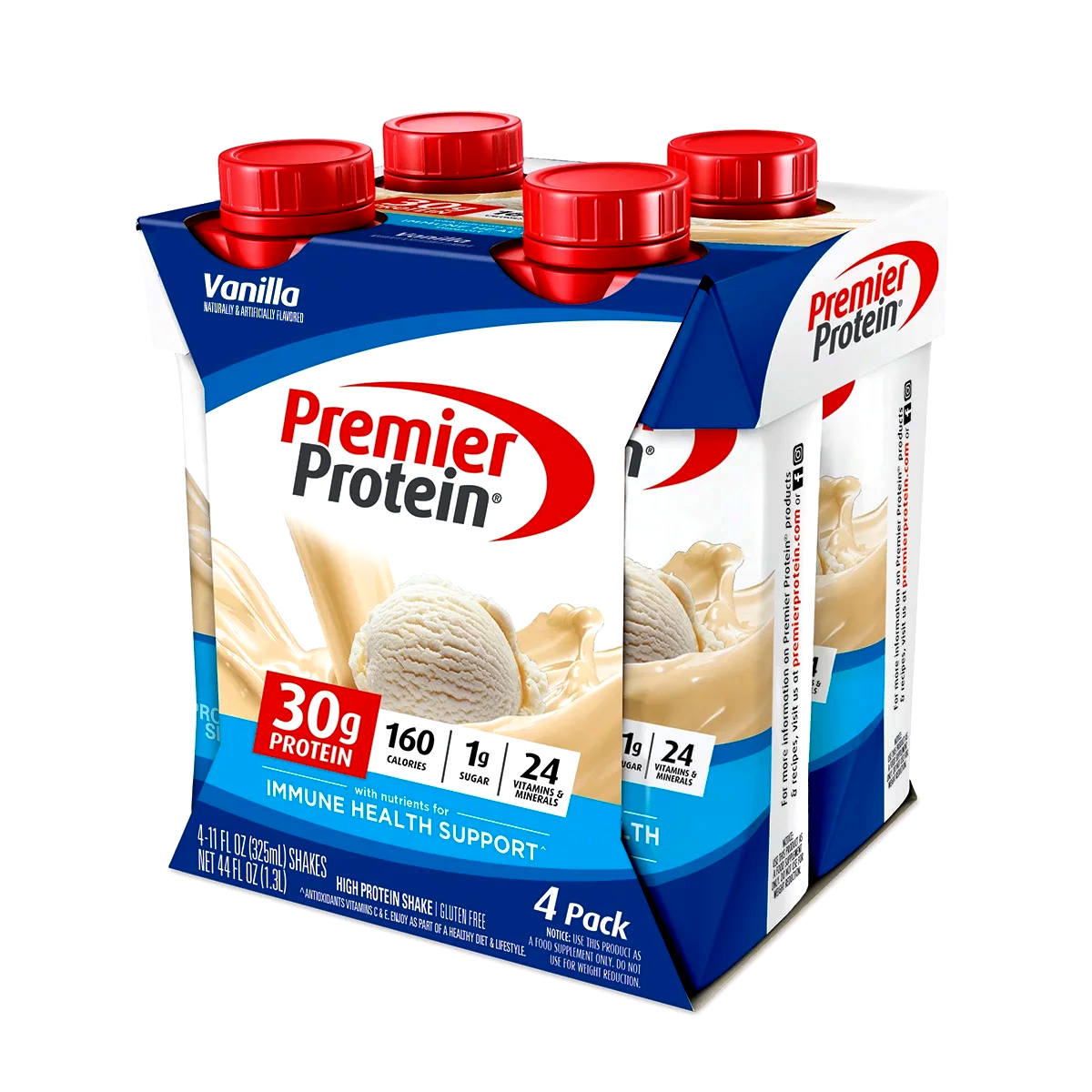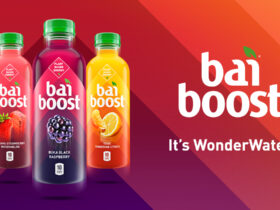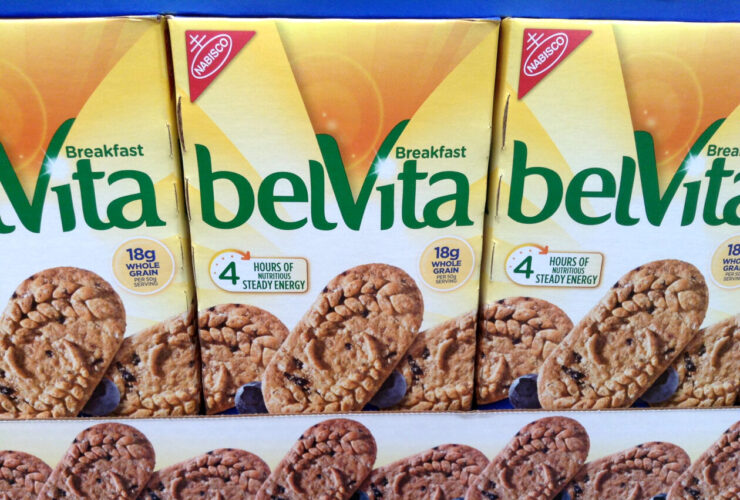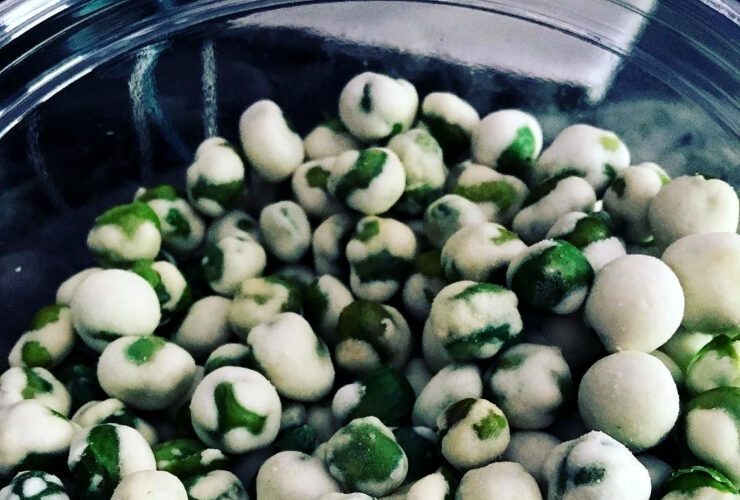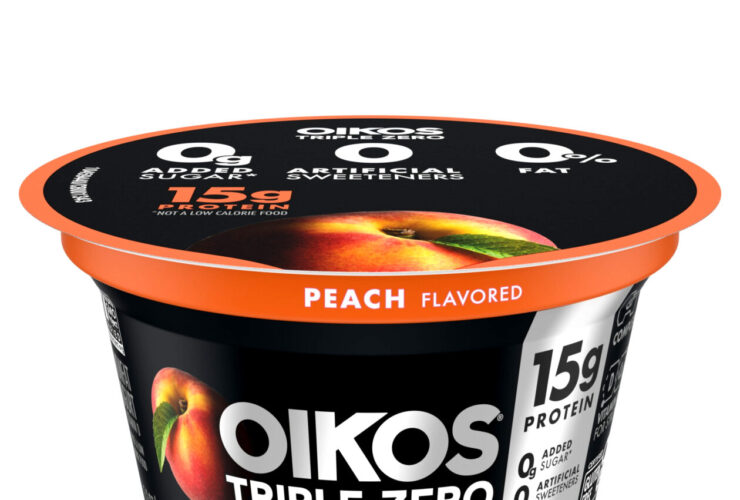In today’s fast-paced world, finding convenient and efficient ways to meet our nutritional needs is a top priority for many. Premier Protein shakes have emerged as a popular option, offering a quick and easy solution to boost protein intake. But amidst the buzz surrounding these shakes, a pressing question remains: Are Premier Protein shakes truly good for you?
Understanding Premier Protein Shakes
Premier Protein shakes1 are renowned for their high protein content, typically around 30 grams per serving. This makes them appealing to individuals looking to support muscle growth and recovery, particularly after intense workouts.
Exploring the Ingredients
Sucralose and Acesulfame Potassium2: One of the key concerns surrounding Premier Protein shakes is the inclusion of artificial sweeteners such as sucralose and acesulfame potassium. While these additives provide the shakes with their sweet taste without adding extra calories, their long-term effects on health remain under scrutiny.
Additives and Thickeners3: Premier Protein shakes contain additives and thickeners, including carrageenan and cellulose gum. While regulatory authorities generally recognize these ingredients as safe, some studies suggest they may adversely affect gut health and overall well-being.
The Controversy Surrounding Premier Protein Shakes
Despite their popularity, Premier Protein shakes have faced their fair share of controversy. Reports of microbial contamination and lawsuits alleging lead contamination have raised concerns about their safety and quality.
Are Premier Protein Shakes Good for You?
Premier Protein shakes offer a convenient way to boost your protein intake, but whether they truly benefit your health is a matter of debate. Here’s a closer look at the pros and cons:
Pros:
- High Protein Content: With around 30 grams of protein per serving, Premier Protein shakes can support muscle growth and recovery, making them suitable for athletes and individuals with active lifestyles.
- Low in Sugar and Calories: Premier Protein shakes are relatively low in sugar and calories, making them a viable option for those watching their calorie intake or managing their weight.
- Convenience: The ready-to-drink format of Premier Protein shakes makes them convenient for on-the-go consumption, providing a quick and easy source of protein when needed.
Cons:
- Artificial Ingredients: Premier Protein shakes contain artificial sweeteners and additives like sucralose and carrageenan4, which may adversely affect health, particularly long-term consumption.
- Safety Concerns: Reports of microbial contamination and lawsuits alleging lead contamination have raised concerns about the safety and quality of Premier Protein shakes.
- Nutritional Profile: While high in protein, Premier Protein shakes may not provide a balanced nutritional profile compared to whole foods, lacking essential nutrients like fiber, vitamins, and minerals.
In summary, while Premier Protein shakes can serve as a convenient source of protein, their healthfulness may be compromised by artificial ingredients and safety concerns. As with any dietary supplement, consuming them in moderation and as part of a balanced diet is essential. Individuals with specific dietary restrictions or concerns about artificial ingredients may want to explore alternative protein sources.
Making Informed Choices
While Premier Protein shakes can serve as a convenient source of protein, it’s crucial to consume them in moderation and as part of a balanced diet. Exploring alternative protein sources may be advisable for individuals with specific dietary restrictions or concerns about artificial ingredients.
Exploring Alternatives
For those seeking healthier alternatives to Premier Protein shakes, options abound:
- Plant-Based Protein Shakes: Plant-based protein shakes offer a natural alternative to animal-derived proteins, free from artificial additives and sweeteners. For a clean and nutritious option, look for brands that use ingredients like peas, rice, and hemp protein.
- DIY Protein Shakes: Make your protein shakes home for ultimate control over ingredients and flavor. Blend ingredients like Greek yogurt, fruit, spinach, and nut butter for a delicious and nutritious homemade treat.
Conclusion
While Premier Protein shakes may offer convenience and a quick protein fix, their healthfulness remains a topic of debate. By staying informed about their ingredients, potential risks, and alternatives, individuals can make educated choices that align with their dietary goals and preferences. Remember, when it comes to nutrition, balance and moderation are key.
In the quest for optimal health, it’s essential to prioritize whole, nutrient-dense foods while supplementing with protein shakes as needed. Ultimately, deciding to incorporate Premier Protein shakes into your diet should be based on your needs, preferences, and overall health goals.
References
- Smiths Agency | smithsagency.com. 2015. “Protein Shakes.” Premier Protein. Premier Protein. 2015. https://www.premierprotein.com/products/protein-shakes. ↩︎
- Danner, L., Malard, F., Valdes, R., & Olivier-Van Stichelen, S. (2023). Non-nutritive Sweeteners Acesulfame Potassium and Sucralose Are Competitive Inhibitors of the Human P-glycoprotein/Multidrug Resistance Protein 1 (PGP/MDR1). Nutrients, 15(5). https://doi.org/10.3390/nu15051118 ↩︎
- Van, Gavin, and Gavin Van. 2018. “Get Gel-Ous with Food Additives.” Prospector Knowledge Center. August 3, 2018. https://www.ulprospector.com/knowledge/8601/fbn-food-thickeners-additives/. ↩︎
- The Cornucopia Institute. 2013. “Carrageenan: Risks and Reality – Cornucopia Institute.” Cornucopia Institute. December 20, 2013. https://www.cornucopia.org/2013/12/carrageenan-risks-reality/. ↩︎
Was this helpful?

Joseph Emb, RDN
Founder of StyleVitally.com | Registered Dietitian & Wellness Advocate
What I Cover:
I’m passionate about connecting nutrition science and everyday wellness to help people live healthier, more vibrant lives. I write about evidence-based nutrition, mindful eating, sustainable lifestyles, and holistic well-being at StyleVitally.com.
My Background:
The University of Texas in Austin, where I earned my Dietetics diploma, laid the groundwork for my nutrition and health career. My training and hands-on experience taught me the science and art of using nutrition to enhance health and well-being.
Professional Journey:
I’m an RDN with lots of experience. I’ve helped people seeking tailored nutritional recommendations in clinical settings and community outreach programs. My constant learning and professional development ensure that my recommendations are always based on the latest evidence.
Ethical Commitment:
My practice prioritizes integrity. My content is transparent and objective, following the most significant ethical standards. I can give my audience unbiased advice because I’m not affiliated with food businesses or industry associations. I want to help people make informed health decisions that match their values and ambitions.
Join Me on the Wellness Journey:
Join me on the path to vitality and well-being, whether facing nutritional issues, seeking sustainable lifestyle changes, or simply wanting a better, happier you. We’ll discover how diet, mindfulness, and holistic well-being can maximize your potential.


